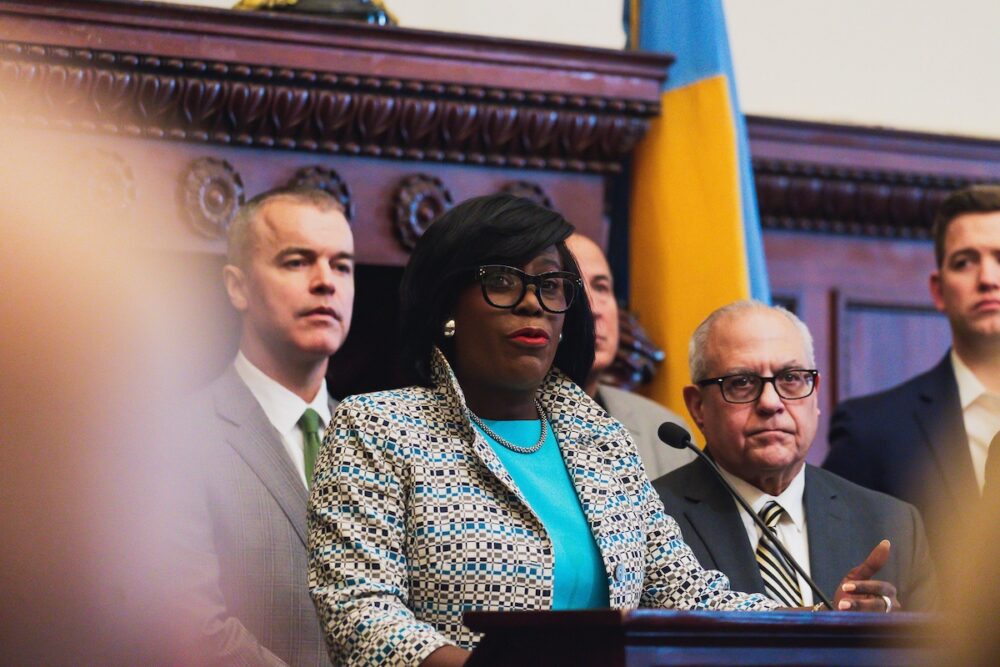Amid a slew of executive appointments and policy changes, local government workers will feel assured that Mayor Cherelle Parker plans to continue the City of Philadelphia’s digital equity work.
When Parker was elected a few months ago, she said her mission was to make Philadelphia a “safer, cleaner, greener” city with access to economic opportunity for all residents.
Without digital inclusion — access to the internet, devices and digital literacy skills — you can’t provide economic opportunities, Parker said at Net Inclusion 2024, the National Digital Inclusion Alliance’s (NDIA) annual conference, which is being hosted in Philadelphia this week.
“Everything has a foundation now in digital connectivity, and we want to make sure it is a priority,” Parker said.
The mayor’s experience working with digital inclusion goes back to her time as a state representative in the Pennsylvania General Assembly where she worked to expand broadband across the state, she said. Parker remembers working with Comcast back when the telecommunications giant launched its Internet Essentials program in 2011.
Over the last 10 years, Philadelphia has been working toward closing the digital divide. Parker recapped those efforts for a crowd of digital equity advocates from across the country. Among them:
- During the pandemic, the City of Philadelphia launched PHLConnected, a program that connected over 23,000 pre-K-to-12 families to free internet services and affordable devices. The program’s internet subsidy ended last summer.
- In 2021, the City conducted a household internet survey and found that 84% of households in Philadelphia have high-speed internet, up from 70% in 2019.
- The City published a five-year digital equity plan in 2022 and established an executive order for digital equity. The plan outlined four main goals: devices, training and workforce, connectivity and ecosystem.
- The City expanded the digital navigator network, which offers free support for digital equity resources, and in spring 2023 partnered with PCs for People to refurbish and distribute low-cost devices.
- The Digital Literacy Alliance, a 2017-founded coalition of Philly organizations funded in part by the region’s internet service providers, has given out over $1 million in grants to local access efforts, including funds for adult digital skills classes.
“Any government, local, state or federal, that tells you they care about closing the digital divide and they don’t have a five-year or some sort of long-term plan … they’re not serious about the issue,” Parker said.
The City is currently hoping to receive a grant that could potentially fund internet connection at over 180 recreation centers in Philadelphia, Parker said.
The NDIA named Philadelphia as one of 47 Digital Inclusion Trailblazers last year — the fifth year in a row the city received this recognition.
Parker’s speech comes during a pivotal moment for digital access: Pennsylvania state government is poised to distribute over $1 billion to expand broadband infrastructure, but at the same time, the federal Affordable Connectivity Program is expected to run out of funding in April.
“While we are in an unprecedented moment of digital equity and broadband infrastructure investment across the city,” Parker said. “My real hope for Philadelphia and for communities across the nation is that we can find our partners and advocates and thoughtfully engage them so resources can flow equitably to address the basic necessities.”







